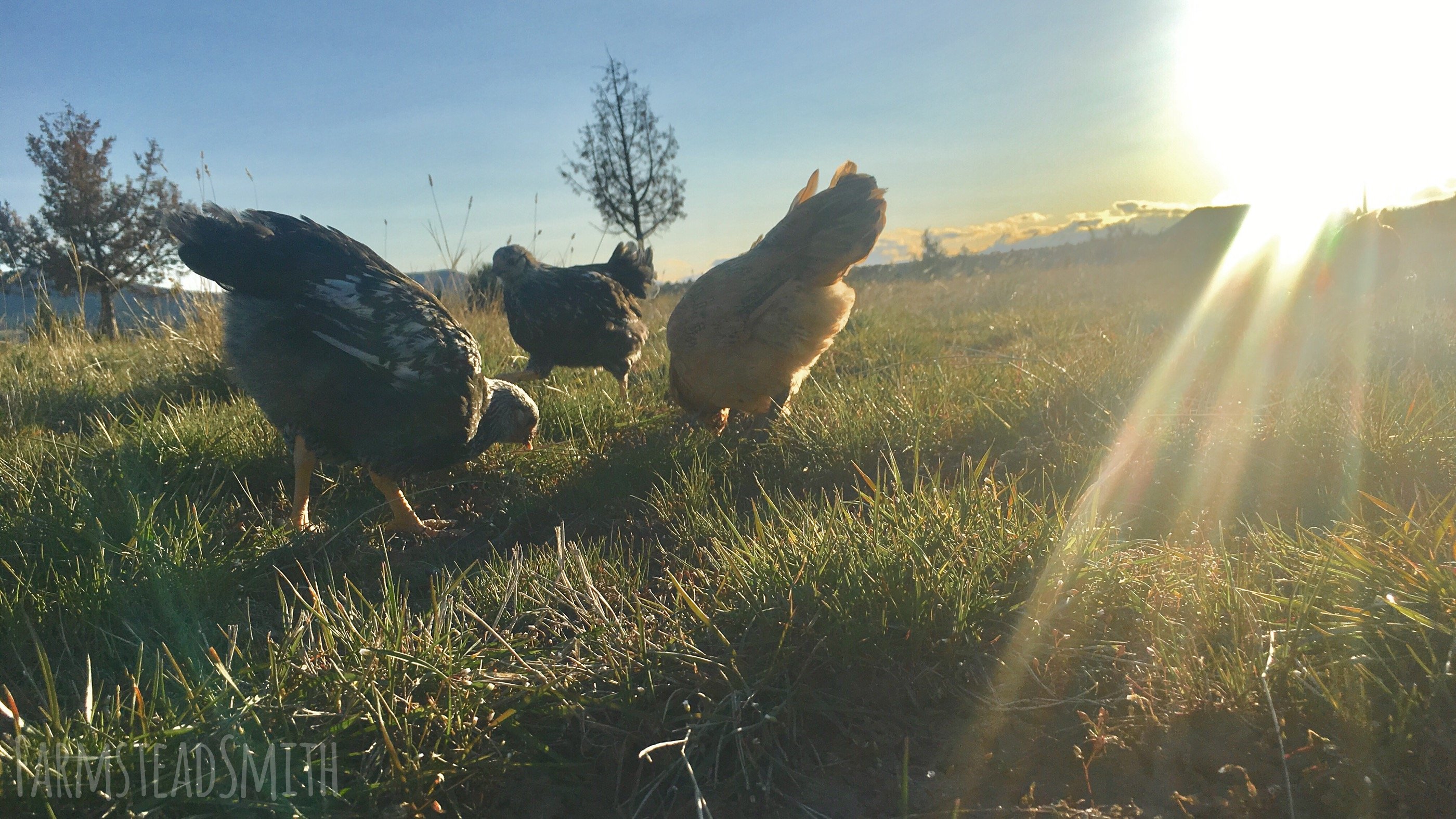
Some people don't, but I am of the belief that you should always provide your poultry with the option of Grit and Oyster Shells - it is better to be safe than sorry! If they don't need it, they won't eat it!
Yesterday I talked about the importance of providing grit for your chickens, and I mentioned I would do a post today about the importance of providing your hens with Oyster Shells as a calcium supplement***.
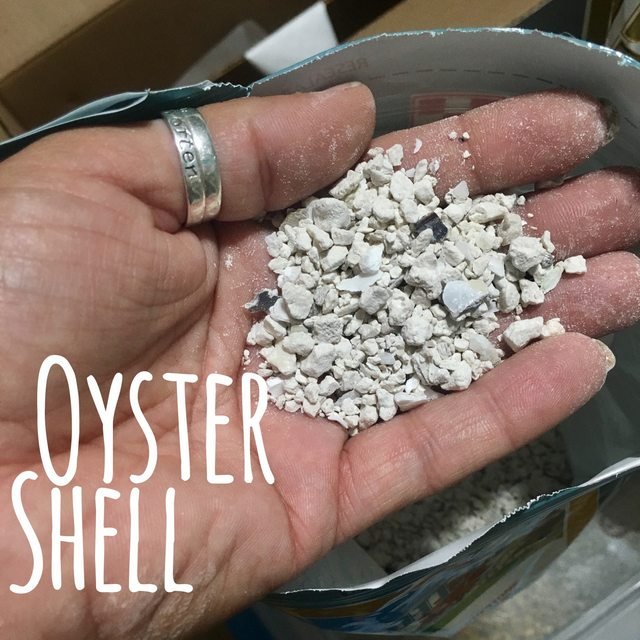
Your hen uses up a ton of calcium in the 18-20 hours it takes for her to develop the eggshell. The egg shell is made up of 94%-97% calcium carbonate. That's a lot! As you can imagine, that depletes the chicken's stores of calcium for themselves. If a chicken does not have enough calcium to spare to create an egg, she starts taking it from her own resources - which leads to brittle bones that are easy to fracture.
The eggshell for each egg that your hen lays is about 95% calcium carbonate by dry weight. In just one year’s time, the amount of calcium that a hen will put into her eggshells can equal 20 times the amount of calcium that is contained in her bones. That’s a lot of calcium. In order to stay healthy and produce strong egg shells, she needs to consume a steady supply of calcium. (McMurray Hatchery)
It would also be good to note that a hen's calcium needs will fluctuate throughout her lifetime based on age and even the weather! Typically the calcium needs increase in hot weather and as she ages. It is also important to feed supplemental calcium if your laying hen eats anything other than complete laying hen feed. She will need more calcium if she is foraging, enjoying scratch, or treats.
Other than affecting their bones, not having enough calcium will affect their eggs! They can lay eggs that have either a very thin and brittle shell, or even no shell at all! Eggs without a shell are often called Soft Shelled or Shell-less eggs. And they're weird! One of my hen's first** egg was a shell-less! Man, it was weird! I'm gonna do a post about it, but here's a pic!
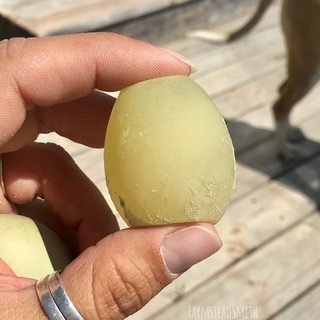
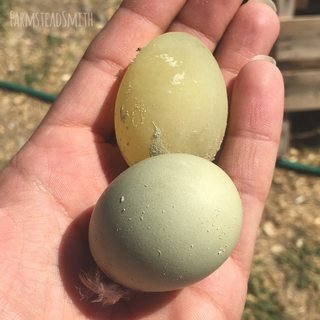
You can see above the soft egg on the left, and then in the image on the right is a hard egg (in front) with the soft egg behind.
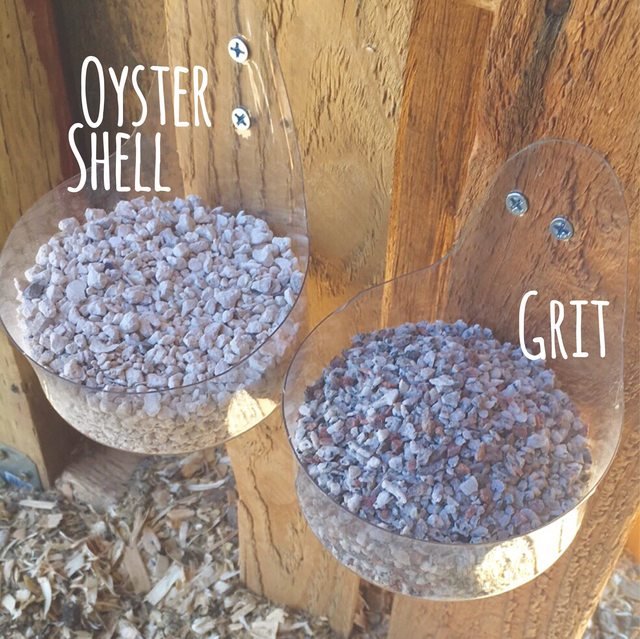
Some believe that giving cooked crushed eggshells back to your hens replaces or is just as good as giving them oyster shell as a supplement. Unfortunately it is not. It is fine to give along with the oyster shell but not enough on its own.
You can cook your eggshells in the oven at 350f for about 10 minutes. This cooks off any bad bacterias the shell may harbor. Once cooked you must crush the eggshells down into pieces that do not look like eggs/egg shells. Some refuse to give crushed eggshells as a supplement in fear it will create an egg eating hen and other sources say not to give it at all in fear it might give their chickens Salmonella. Whether or not you decide to feed eggshells back to your hens is a decision for you to make on your own with additional research. I know a lot of people who do feed eggshells back to their chickens without problems.
So why risk it? Your hens might need it! Either they'll eat it or they don't! It's not something that goes bad, thank goodness. It will be really good for them for you to add it to their diet by offering it free choice along side their feed and grit.
* The average chicken will do fine on a well rounded high quality feed made for laying hens, however, this does not account for the chickens that are outside of the average range. Some chickens will need more or less calcium - just like you and I. Some people need to supplement calcium, and some don't.
** Sometimes when hens first start laying they will lay shell-less eggs when they're body is getting used to laying.
*** Limestone is also used for calcium supplementation. I haven't seen it around me, but I am sure it's there if I look. I actually did not know this and figured it out while doing research today.
Note: I have read some sources that say not to put the supplemental calcium into the feed since not all of your chickens (roosters and chickens who are not laying) need the extra calcium. You should provide your supplemental calcium in a separate dish, the chickens who need it will take as much as they need, instinctively, while the ones who do not need it, won't touch it.
Check out my most recent Steemit Posts.
- Homesteading is Important to Me...
- #FollowFriday
- One Month Steem-a-versary! 400 Followers! (nearly)
- On Getting Caught Up in Drama
- Super Simple Tacos [Recipe]
- Your Chickens NEED Grit! [DIY Dispenser]
Blog Series
- Nature on the Farmstead - These posts will be educational and informative about the nature that happens on my farmstead. Look forward to posts about wild animals, birds, wildflowers and plants, insects, and more!
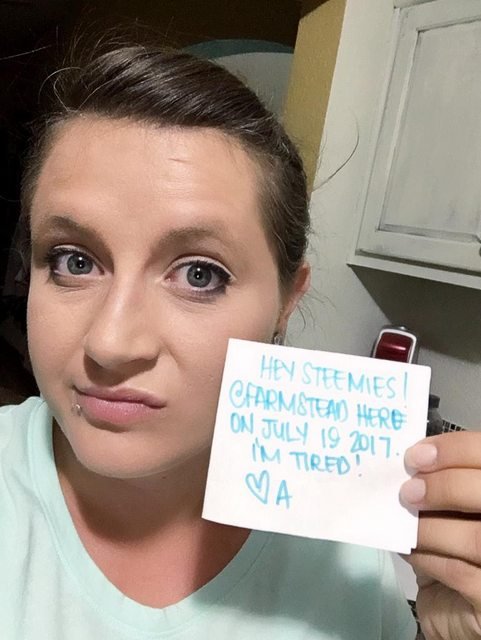
Photos by me using my iPhone 6s, unless stated otherwise!


Badges by @daddykirbs and @allforthegood!
